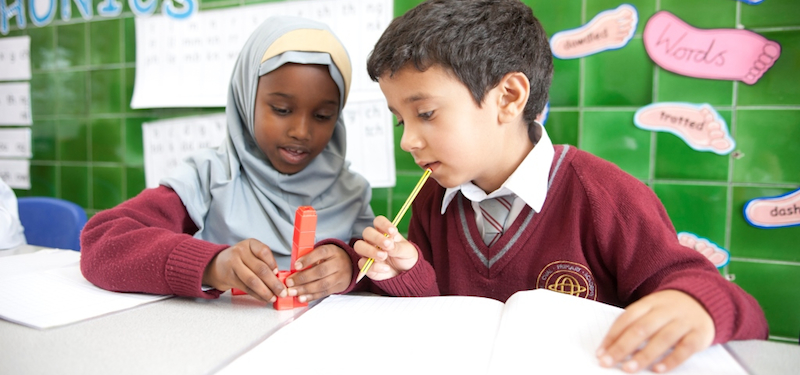The link between family income and educational achievement in the UK is possibly the most staggering in the developed world. Just 16% of young people on Free School Meals (the most common indicator of poverty) progress to university, compared with 96% from independent schools. The odds are stacked heavily against those children who come from poorer backgrounds. At every stage they are increasingly likely to be knocked back: even before they start school, children from the poorest fifth of families are nearly a year behind (in terms of vocabulary tests) than their middle income peers. The good news, however, is that this isn’t inevitable – some of the best schools in the country work with children from poorest backgrounds, and we’ve seen some of the worst schools become some of the best.
At ARK Schools, we have first-hand experience of this. This academic year we saw one of our schools, Charter Academy in Portsmouth, become the second most-improved school in the country. In 2009, before it joined ARK, the school was one of the worst in the country – just 3% of pupils achieved 5 A*-C GCSEs. Now that figure is 68%, and it is top of the league tables in Portsmouth.
Another ARK school, Burlington Danes Academy, was labelled one of the worst comprehensives in London when it was placed in Special Measures in 2006. The proportion of students eligible for Free School Meals was well above national average, as was the proportion of students who speak English as an additional language. Since becoming an ARK school it has been judged ‘Outstanding’ by Ofsted across the board, and recently students have progressed to prestigious universities such as Oxford, Imperial and UCL.

Many factors contribute to turning around a failing school or building a great new one, but it’s when teaching and learning becomes part of the school’s culture that it can really aim to transform children’s lives. Great teaching gives students more choices in life, and more chances to succeed.
At ARK Schools we believe that all teachers can become great with the right training and support at the right time. We are constantly training our own teachers to be the best they can be. This belief has led us to train our own teachers from scratch. By doing this, we can now look for the brightest and best from everywhere, not just teaching professionals. Graduates and career-changers make up our first cohort, and they bring their skills from their degree or previous career into the classroom. Unsurprisingly, they all tell us it’s the most rewarding thing they’ve done.
The reason we have a particularly strong focus on initial teacher training is that we know how important the first few years are when training teachers. Studies have shown that the first 3 years of training are incredibly important to the teacher that you become. The transition from complete inexperience to 3 years’ experience has the biggest impact on future performance; in fact, one study found that “the bulk of experience effects occur during the first year”. Like teaching children in our schools, we know that we can’t afford to miss any opportunity when training our teachers. Every day counts.
What we’ve learnt is that the best training works through a fine balance of theory and practice, where trainees are in the classroom from day one, but are supported every step of the way with a huge support network. When they pick up something new, they can put it into practice the very next day. By not dropping trainees in the deep end, and focusing on small, clear, achievable targets, we are confident we can develop teachers who learn to master – and love – teaching. Teachers who will make a difference by working in some of the most disadvantaged communities in the UK – collectively throwing their weight behind the mission to provide every child with the education they deserve.
If you’re interested in hearing more or applying to the programme, please email us at teachertraining@arkonline.org or visit arkschools.org/teacher-training.
Related links:
- ‘The children used to throw chairs at people out of the window’ – The Independent article on Charter Academy
- ‘Nearly 50 per cent of students on Free School Meals don’t achieve a GCSE grade above D’ – Cassen and Kingdon, 2007
- The Sutton Trust Fast Facts about educational disadvantage
- Interesting blog post about the teacher ‘Performance Plateau’ after 3 years
- The London Challenge: While the divide between rich and poor is at its widest in London, the gap has been successfully narrowed when it comes to education.
